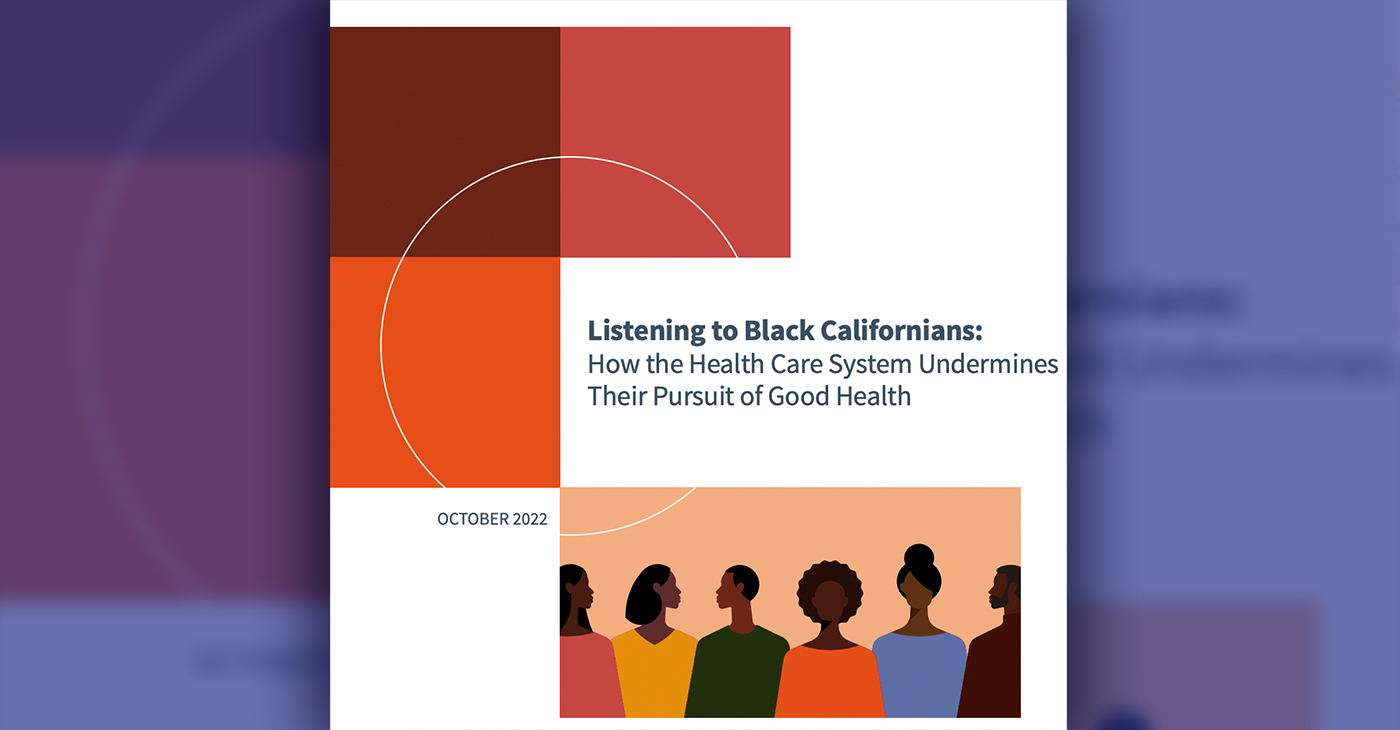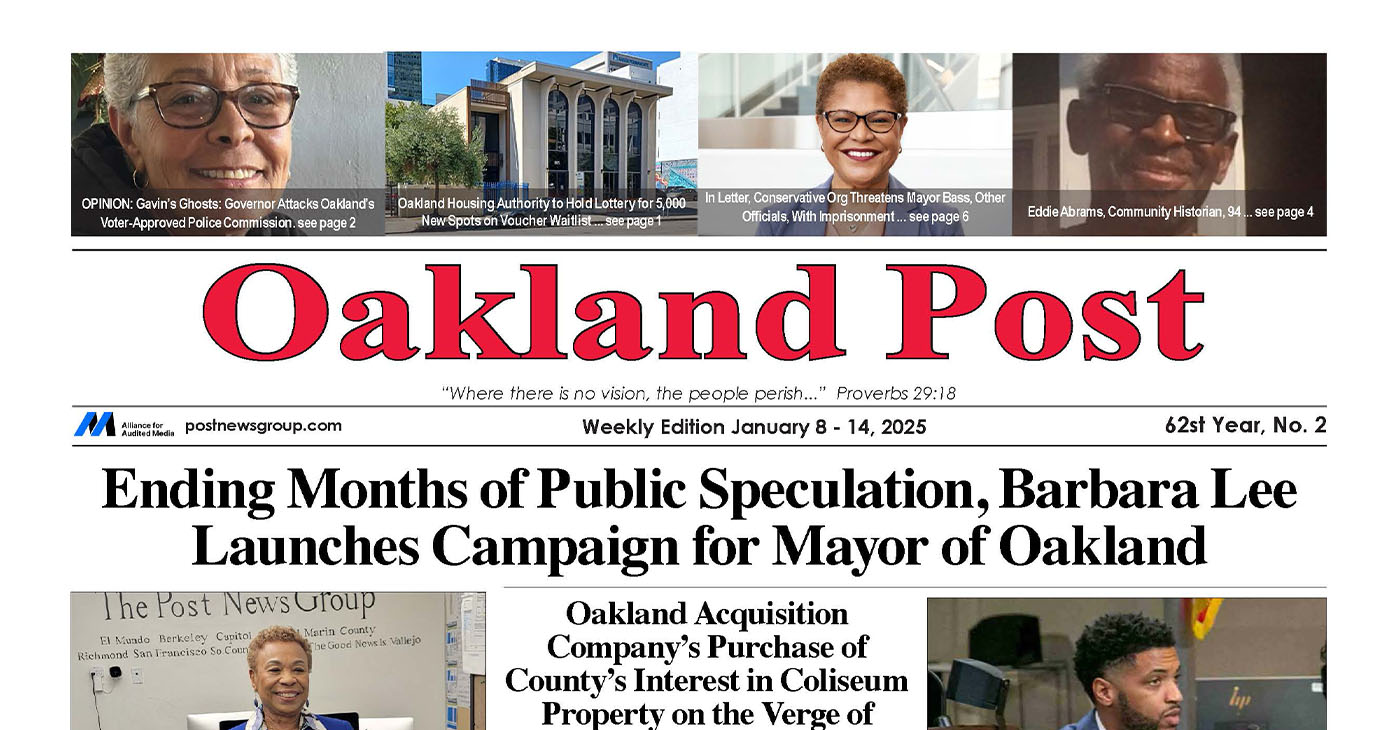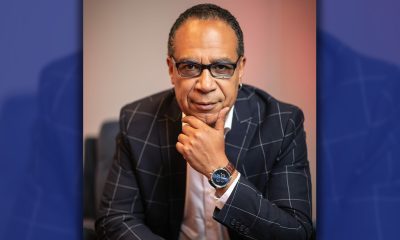Activism
Research Finds Black Californians Prioritize Health, While System Fails to Prioritize Black Californians
The data that was collected showed that 90% of Black Californians say that they have health insurance coverage, and 92% of respondents said that they have seen a doctor or healthcare provider in the last year. Most people reported putting “a great deal” or “quite a bit” of effort into getting screenings and preventative care, tracking health indicators like blood pressure and cholesterol, and working to maintain a healthy weight. Four out of five reported focusing “a great deal” or “quite a bit” on mental health.

Maxim Elramsisy | California Black Media
The California Health Care Foundation (CHCF) has released a study that found Black Californians are highly engaged with their health care, are active in advocating for their health and have strong and clear opinions about how the healthcare system can be improved.
“I think it’s surprising because of the pervasive myths about noncompliance among black patients,” said Shakari Byerly, managing partner of EVITARUS, a Los Angeles based Black-owned public opinion research firm who designed, conducted and analyzed the research. “The fact is that our traditional foods may not be as healthy. While that may have some degree of anecdotal resonance, what we’re seeing broadly is that people are working very hard.”
The study was staged in three different phases intended to get varying levels of insight from different cohorts of Black Californians.
Phase one consisted of hourlong interviews with 100 individuals to understand their views on health, perceptions of discrimination, and their vision for an ideal healthcare system.
In Phase Two, the researchers conducted 18 segmented focus groups to explore structural issues in the healthcare system.
In Phase Three, 3,325 Black Californians were surveyed to determine how well the findings in phases one and two captured and represented the views of the general population of Black Californians.
The data that was collected showed that 90% of Black Californians say that they have health insurance coverage, and 92% of respondents said that they have seen a doctor or healthcare provider in the last year. Most people reported putting “a great deal” or “quite a bit” of effort into getting screenings and preventative care, tracking health indicators like blood pressure and cholesterol, and working to maintain a healthy weight. Four out of five reported focusing “a great deal” or “quite a bit” on mental health.
One in three Black Californians and nearly half (47%) of Black women say they experienced inadequate treatment for pain by their health care provider. “We’ve heard story after story of Black women in particular, talking about not being believed, having their pain and agony inadequately treated,” Byerly said.
Nearly one in three Black Californians was found to be treated unfairly by a healthcare provider because of their race or ethnicity, and more than one in four Black Californians avoid care due to concerns that they will be treated unfairly or with disrespect. Unfair experiences are most common among Black Californians with mental health conditions, disabilities, identifying as LGBTQIA+, and women.
The study found that Black Californians have clear opinions on how to improve the health care system. Strong majorities (75%<) expressed that it is extremely important or very important to increase Black representation among health care leadership and in the healthcare workforce. The majority in each age group said that it was at least somewhat important to have a Black or African American Doctor. According to data released by the American Medical Association, 10% of medical school matriculants in 2021 self-identified as Black, or a combination of Black and Asian, Hispanic, or White.
“There needs to be additional support. Financial support. Upfront financial support, for those who want to be doctors. In nursing there’s also a need for financial support, but there’s also not a standard for advising people about the most efficient, most successful pathways to nursing careers … that’s a problem that can be corrected,” CHCF senior program officer Katherine Haynes told California Black Media. “There is another issue and this has to do with the environment in which physicians and nurses practice … Just as patients experience racism, providers experience racism, and they experience it from their peers, from their supervisors, from patients … building practices of reporting those instances of racist treatment need to be made more robust so that a system is created in which providers of color can do their best work for patients. That means having zero tolerance for racist behavior in our healthcare institution.”
The survey indicated that Black Californians believe that there should be an expansion of community-based education to teach about how to access health care options and an increase of Black community health care advocates. They believe that there should be accountability for providing equitable care using financial and accreditation incentives, and through additional training to providers.
More than 80% of the survey respondents said that they are very satisfied or somewhat satisfied with their main source of healthcare. Satisfaction rates were inversely related to age.
“When you look at elders 65 and older, and really 75+, they are the sickest, yet, they appeared most satisfied with their care … that satisfaction is in contrast to younger people who tend to go to urgent care or emergency rooms for care” said Haynes. “I suspect … that it comes from familiarity, having relationships and knowing how to use the system.”
The CHCF study showed that Black Californians go to great lengths to prioritize their health, but the health care system fails to prioritize them.
Haynes recommended one solution. “You can report it to your health plan. You can return it to the state licensing board. You can contact the Department of Managed Health Care, which oversees health plans and to the Office of the Patient Advocate. Those are your rights,” said Haynes. “I will tell you that if you file a grievance versus a complaint, it poses legal liability and so those things that rise to that, or look like they might rise to that, are much more likely to get a response from a health care system.”
You can read the whole report here.
Activism
Oakland Post: Week of January 8 – 14, 2025
The printed Weekly Edition of the Oakland Post: Week of January 8 – 14, 2025

To enlarge your view of this issue, use the slider, magnifying glass icon or full page icon in the lower right corner of the browser window.
Activism
Barbara Lee Launches Campaign for Mayor of Oakland
“At this critical moment, we must not be a city divided, but a community united,” she Lee. “If elected I will bring my hands-on leadership, new ideas and decades of experience in identifying billions in resources for our great city, so all residents and businesses are stronger and safer and our community has optimism and confidence in Oakland’s future.”

By Post Staff
Barbara Lee on Wednesday morning formally announced her candidacy for Mayor in Oakland’s April 15 special election.
“Time and time again, Oaklanders have faced our toughest obstacles by uniting to meet our challenges,” said Lee.
“At this critical moment, we must not be a city divided but a community united,” she said. “If elected, I will bring my hands-on leadership, new ideas, and decades of experience in identifying billions in resources for our great city so all residents and businesses are stronger and safer and our community has optimism and confidence in Oakland’s future.”
“As Mayor, I’ll address our homelessness crisis, prioritize comprehensive public safety and mental health services, and lead with fiscal responsibility to deliver the core City services residents and business owners deserve. Let’s do this – together.”
“I’ve never shied away from a challenge,” said Lee. “I’m always ready to fight for Oakland.”
Watch her campaign video here, which is online at BarbaraLee4Oakland.com
Activism
Who Wants to Be the Next Elected Mayor of Oakland?
The Oakland Post is issuing a CALL to all candidates to present their answers, plans, or solutions in response to our list of questions.

By Paul Cobb
Many of you probably recall the oft-repeated expression when describing leadership that “many are called but few are chosen.” We will be inundated during January with many claims of qualifications by those who want to lead Oakland.
As of Jan. 1, 2025, we have heard the names of 14 potential candidates who might become Oakland’s next Mayor.
The Oakland Post is issuing a CALL to all candidates to present their answers, plans, or solutions in response to our list of questions.
Any candidate who wishes to receive a free announcement, publicity or space in the paper must submit solutions.
- The first questions we propose are 1) What is your budget balancing plan?
- What is your position on requiring all city employees to work full-time in their designated offices rather than remotely from their homes?
- What is your plan to provide open-access opportunities to all police officers for overtime pay?
- Since many businesses, especially downtown, have closed, what is your plan to attract and increase revenues?
Please send your submissions of 300 words or less to each question to Social@postnewsgroup.com or visit www.postnewsgroup.com
-

 Activism3 weeks ago
Activism3 weeks agoBooks for Ghana
-

 Arts and Culture4 weeks ago
Arts and Culture4 weeks agoPromise Marks Performs Songs of Etta James in One-Woman Show, “A Sunday Kind of Love” at the Black Repertory Theater in Berkeley
-

 Bay Area3 weeks ago
Bay Area3 weeks agoGlydways Breaking Ground on 14-Acre Demonstration Facility at Hilltop Mall
-

 Activism4 weeks ago
Activism4 weeks ago‘Donald Trump Is Not a God:’ Rep. Bennie Thompson Blasts Trump’s Call to Jail Him
-

 Activism3 weeks ago
Activism3 weeks agoLiving His Legacy: The Late Oscar Wright’s “Village” Vows to Inherit Activist’s Commitment to Education
-

 Arts and Culture3 weeks ago
Arts and Culture3 weeks agoIn ‘Affrilachia: Testimonies,’ Puts Blacks in Appalacia on the Map
-

 Alameda County3 weeks ago
Alameda County3 weeks agoAC Transit Holiday Bus Offering Free Rides Since 1963
-

 #NNPA BlackPress4 weeks ago
#NNPA BlackPress4 weeks agoCalifornia, Districts Try to Recruit and Retain Black Teachers; Advocates Say More Should Be Done


















































